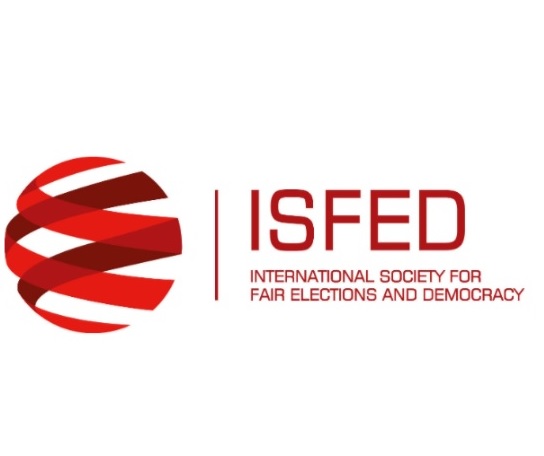Electoral Reform in Ukraine #9

Current issue outlines the status quo of the electoral reform process less than a year before the parliamentary elections in October 2019 and provides an outlook for next year. Observers in Ukraine do not assume that there is currently a majority in the Parliament that supports the introduction of a proportional electoral system with open […]
EPDE Policy Alert – Electoral Reform in Ukraine #9

The European Platform for Democratic Elections (EPDE) monitors the progress of electoral reform in Ukraine. Issue no. 9 of the “EPDE Policy Alert – Electoral Reform in Ukraine” outlines the status quo of the electoral reform process less than a year before the parliamentary elections in October 2019. Less than a year before the […]
Social Media Monitoring – 1st Interim Report

ISFED is conducting a pilot Social Media Monitoring project for the 2018 Presidential Elections in Georgia. Given the increased role of social media in election campaigns and past experience of the use of Facebook for illegal campaigning as well as for discrediting electoral contestants in Georgia, ISFED has developed a methodological approach and with the […]
ISFED presented social media monitoring report
On October 26, the International Society for Fair Elections and Democracy (ISFED) presented interim report of social media monitoring in the context of the 2018 presidential election. ISFED is the first observer organization in Georgia to conduct methodic pre-election monitoring of social media for elections. The monitoring began on August 29. At this stage, in […]
ISFED Statements on Abuse of Administrative Resources
After publishing results of the first round of the October 28, 2018 presidential election, the government of Georgia and the local authorities started extensively making promises about different social and infrastructural projects. The Prime Minister of Georgia and other members of the government unveiled different projects that provide material benefits for specific social groups. Promises […]
ISFED Statement on Threats against Salome Zourabichvili
ISFED responds to the statement made by the presidential candidate of Georgia, Salome Zourabichvili claiming that on November 9-10 and 11, she and her children received death threats through voice and text messages. According to the candidate, the threats are real because, as she stated, persons that made these threats have been identified as former […]
Foreign Observation of the Illegitimate General Elections in the DPR and LPR

The international community considered the “General elections” in Donetsk and Lugansk as illegitimate and did not send any observers to monitor them. Aiming to fill the void of legitimacy, the “authorities” of the DPR and LPR invited dozens of “international observers” from countries such as Austria, Canada, France, Italy and Germany. None of them were […]
Politically biased election observation in Donetsk and Lugansk People’s Republics

Picture source: facebook.com/alexistarrade.AT Executive summary As the holding of “general elections” in the internationally non-recognised Donetsk People’s Republic (DPR) and Lugansk People’s Republic (LPR) ran counter to the Minsk agreements, the international community considered them as illegitimate and did not send any observers to monitor them. Aiming to fill the void of legitimacy, the […]
ISFED Post-Election Statement: The standard of adjudication of electoral disputes has worsened
ISFED released on 8 November a statement, summarizing the post-election observation of complaints and adjudication process by the election administration. While ISFED observers had an opportunity to attend adjudication of complaints and express their position in almost all DEC sessions, the key finding is that the standard of adjudication of electoral disputes has worsened. Moreover, […]
Evaluation of the Pre-Election Environment of the 2018 Presidential Election
On August 1, the President of Georgia set October 28 as the date of the regular presidential election. Official election campaign began on August 28, sixty days prior, and became more intensive and strained as Election Day approached. The election campaign was dominated by electoral subjects exchanging accusations and engaging in campaigning against one another. […]